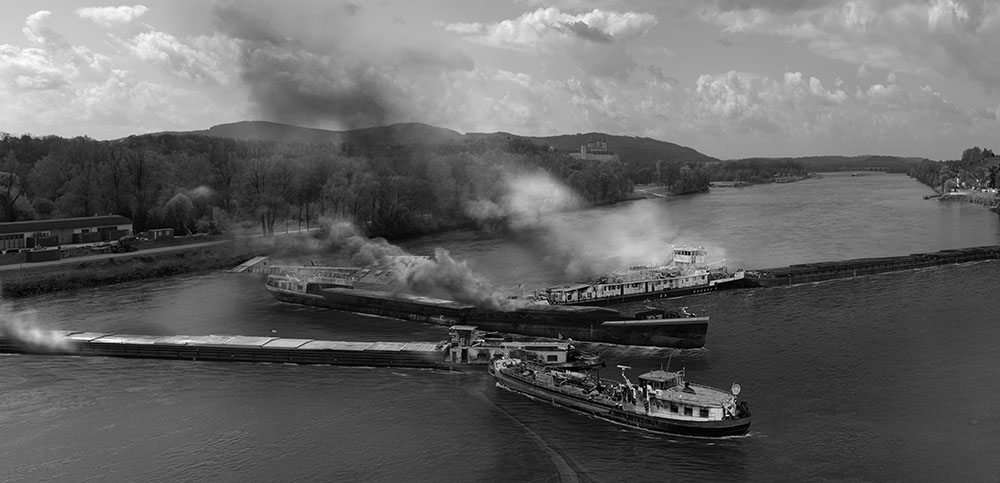Billboard / Oliver Ressler / Version 3
The economy is wounded: let it die!
The large-format billboard (6 x 2 meters) shows a panoramic view of the Danube near Melk (Austria), the town closest to the billboard‘s location at Schallaburg. Cargo shipping of the kind seen is common on the Danube, carrying some 10 million tonnes of freight a year into and out of Austria or straight through it. But the ships on the poster are wedged together and some have run aground. Smoke rises and parts of the ships are charred. Diesel spills visibly onto the surface of the water.
At first glance the photographic mise-en-scene suggests a serious shipping disaster, but closer inspection reveals a blockage that could not be accidental. The Danube is seen barricaded from one bank to the other: the cargo channel is cut off and the river made impassable for all shipping, in what could only be a deliberate act of sabotage.
This artwork intervenes in the critical debate whose first premise is that nothing but systemic economic transformation – including radical curtailment of worldwide trade and shipping – can counteract climate change and associated global threats. This would mean much more production on a regional basis for local consumption, in contrast to the current system that squanders vast amounts of diesel on trans-continental goods transport and concentrates pollution-spewing factories in the global South. Today production in Asia for consumption in Europe is said to emit six times the CO2 that would seep out from the same dirty work done close to the consumers‘ European home.
Many social movements now demand the end of the so-called “free movement of goods”; the billboard attempts to convey this succinctly in a single image. The title The economy is wounded: let it die! alludes to a graffito in Paris, May 1968 (L’économie est blessée, qu’elle crève!). Here this evokes the crisis intrinsic to present-day global capitalism, which can be overcome only through wide participation in oppositional praxis of all kinds.

